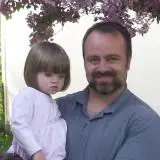
The Importance of Knowing God
Having an opinion is good. Nearly everyone does. Religion is a funny matter in that, yes, there is truth and error in it, but in some of its aspects, the truth of religion can only be inexactly known to the human mind.
Yet there is no place for agnosticism, if that is supposed to mean that it’s okay to have no interest at all in the great questions of life. Catholicism has always insisted that knowing God is what life is all about.
That doesn’t mean we all can be nor should aspire to be theologians or philosophers. At the very least it does mean that of all the bodies of knowledge to which we dedicate ourselves to building up within us – at least outside of that which pertains to our profession – our knowledge of God should receive most of our time and effort. The results will really differ, obviously, from person to person. Yet we should all give learning about God a privileged place.
The Error of Separating Spirituality from Religion
The big error that needs to be overcome here is the one that suggests that religion is not at all a matter of knowing but of believing and of feeling. When people speak of ‘liberalism’ with respect to religion (not politics), especially in the context of the 19th Century – but today too – what they are referring to is the view that makes of religion but a matter of the heart, as they say.
Today sometimes people say of themselves that they are ‘spiritual’ but not ‘religious.’ That’s totally incoherent in the sense that these people are saying that what you believe cannot or should not have any actual impact on your life. ‘Religion’ means to follow a rule. That’s why we call monks and nuns religious. It doesn’t mean that they are more religious than us; it means they follow a rule of life, like that of St. Benedict, Augustine or Basil.
In the most general sense, religious people are those who follow what they suppose are God’s rules for life. If you are spiritual but not religious you are either totally unsure of what God wants or you doubt that He exists and yet would like to believe in some non-tangible reality anyway. That’s totally incoherent. I am not spiritually attached to the ring of Sauron because I do not believe it exists.
I do not have a ‘spirituality of Athena’ because I do not believe that deity exists, and wouldn’t know what to make of such a concept anyway. Spirituality is the inner part of our relationship with God. If it doesn’t correspond to an ‘outer part,’ that is at the very least silly, and at worst, narcissistic, that is to say, self-centered nonsense.
Some of the lucky get to study their faith in university. Some, like me, even get to make it their profession (albeit not a very lucrative one). But everyone can and should give it careful attention. This is not primarily in order to ‘sell’ it to others, that is, for sake of evangelization. No, primarily, you need to study the Faith to nourish your relationship with God.
The fact of the matter is, with so much information coming at us all the time, we can forget God. In such a situation as this, even if we don’t truly forget Him, He will inevitably become less and less important to us. Likely, it’s not enough to ‘just’ pray and go to mass.
I say likely, because for some people it might be, although I cannot imagine how it would be. Human beings need to know things. Children exemplify this most obviously, by asking their endless lists of questions. The questions adults should be asking, and do ask spontaneously and perhaps even subconsciously, are,
- Who is God?
- Why did He make me?
- What am I to do?
- How can I be happy?
- What will death bring?
- How can I help my family and others?
For some people and at certain times these questions are more urgent. This is what the books of Ecclesiastes and Job show, for example. But it doesn’t matter what psychology says about personality types, to ask and to discover some kind of answer to these questions pertains to every human being. Because you are an extrovert, who naturally lives on the surface of things, that is no excuse for not seeking the deeper truths of life. Being too busy with work, being important in the eyes of the world, is no excuse. Not being a reader, is no excuse. Reading is one way to encounter the deep truths of life, but it is not the only way.
Asking the Most Important Questions in Life
What is essential is to ask the above questions to God in prayer. Books can aid in that, but they are no substitute. One of the best books to aid in this is the Catechism. Read it with these questions in mind. Don’t only, or most importantly, get caught up in the details of the Catechism. The Church, the deposit of Faith, the Creeds, the Bible, these were all given to aid in the answer to these questions.
By the simple fact that someone can be an expert on these things and yet not be happy, know God, and have a sense of purpose in life, means that knowing the letter, the details, is not the same things as knowing what these sources of our Faith are meant to do.
Sharing the Truth and Helping Others Find God
Now, if all that I have said is true, a demand is placed on me in my relationship with others. It requires that I help other people with these questions, because they are human just like me. Evangelization has been too often depicted as imperialism or at least as an unwarranted intrusion into the lives of others. (The easiest way to discredit the message is to discredit the messenger, so as to avoid having to confront the message itself.) But never mind, sparking another’s interest in the truth of life is the greatest kindness.
Relativism, the idea that there is no one truth about life, promised to make life better for people – no fighting about who’s right and who’s wrong anymore. Why, then, are people so unhappy now, despite that we are living in the age of humanity’s greatest wealth? Because wealth frees people up to ask the very questions for which they are now being told there are no answers. Not kindness.
If people know anything about St. Augustine, they know the quote from the first paragraph of his Confessions: “Our hearts are restless until they rest in Thee.” It’s true; it’s a simple fact. Denying it doesn’t make it any less true, its implications any less real. If Augustine is right then we can never be at rest, happy, without God.
Our minds are the biggest part of us. We must fill them with God.

Colin wrote this Article for the Knights of the Holy Eucharist. He has been married to Anne-Marie since 1999, and they are proud to raise their six children, in a small town in Ontario, Canada. Colin has a PhD in Theology and works tirelessly to promote the Gospel. “Just share the Word,” is what he believes the Lord says to him – and so he does. He recently founded The Catholic Review of Books, a printed journal and website dedicated to “all things books” from the perspectives of faithful Catholics. He is fascinated by the concept of chivalry as it applies to being a man and a father in today’s crazy world.
